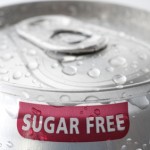Is Sugar No Longer Your Best Friend?
Author: Dr. Stephen Chaney
 Sugar has gotten a lot of bad press in recent years. You’ve probably already heard that high sugar intake is associated with inflammation, obesity and diabetes. As if that weren’t bad enough, the latest headlines proclaim that added sugar may also increase our risk of fatal heart disease. Are those headlines true? And if they are true, what should you do about it?
Sugar has gotten a lot of bad press in recent years. You’ve probably already heard that high sugar intake is associated with inflammation, obesity and diabetes. As if that weren’t bad enough, the latest headlines proclaim that added sugar may also increase our risk of fatal heart disease. Are those headlines true? And if they are true, what should you do about it?
Sugar Basics – The Truth About Sugar
There are three facts about sugar that almost every expert agrees with:
- The sugars that occur naturally in foods like fruits and vegetables are generally not a problem unless you are a diabetic. It is the added sugars in our diet that we should be concerned with.
- The amount of added sugars in the American diet has increased dramatically since the founding of this country. Based on data from the US Department of Commerce and the USDA, the amount of added sugar in the American diet has gone from 6.3 pounds/year in 1822 to over 100 pounds/year in 2000. Put another way, we have gone from consuming the amount of sugar in a 12 oz soda every 5 days in 1822 to every 7 hours in 2000.
- The lion’s share of that added sugar is coming from sodas and similar sugary beverages. The amounts are: sodas and other sugar-sweetened beverages (37.1%), grain-based desserts (13.7%), fruit drinks (8.9%), dairy desserts (6.1%) and candy (5.8%).
Beyond that there is little agreement among experts. When I was a young man the sugar “villains” were glucose and sucrose. Then it was sugar alcohols. Today it is high-fructose corn syrup and maltodextrin. Tomorrow it will be something else.
In reality there are no sugar heroes and no sugar villains. The harmful effects of added sugars are based almost entirely on:
- The amount of added sugars in the diet…and…
- The type of foods those added sugars are found in.
For more information, watch my video “The Truth About Sugar”.
Does Sugar Cause Heart Disease?
The study behind the headlines (Yang et al, JAMA Internal Medicine, 174: 516-524, 2014) followed 11,733 participants in the 3rd National Health And Nutrition Examination Survey (NHANES III) for an average of 14.6 years. (NHANES studies are designed to represent a cross section of the adult US population). Sugar intake was based on the average of two dietary surveys for most of the participants, and cardiovascular deaths were determined from the NHANES III Linked Mortality Files.
The average intake of added sugar in the American population was around 16% of total calories (compared to around 1% of total calories in 1822). For comparison purposes, the authors divided the population into three groups based on added sugar consumption:
- Those consuming less than 10% of calories from added sugar (28.6% of the population).
- Those consuming between 10% and 25% of calories from added sugars (46.4% of the population).
- Those consuming more than 25% of calories from added sugars (25.0% of the population).
When the groups with the 10-25% and >25% of calories from added sugars were compared to the <10% group with respect to cardiovascular deaths, the results were pretty striking.
- The group consuming 10-25% of calories from added sugars had a 30% increased risk of dying from heart disease
- And the group consuming >25% of calories from added sugars had a 275% increased risk of dying from heart disease!
This association between added sugar consumption and risk of cardiovascular death was independent of age, sex, race/ethnicity, educational attainment, physical activity, HEI score (a measure of overall diet quality and BMI (a measure of obesity).
The Strengths And Weaknesses of This Study
Strengths:
- This was a particularly large, well designed study.
- This study is consistent with a number of early studies suggesting that added sugar intake increases the risk of cardiovascular death. See, for example “Can Soft Drinks Cause Heart Disease?”
Weaknesses:
- The main weakness of this study is that it measures associations only. It does not prove cause and effect.
Should You Switch To Diet Sodas?
 You may be thinking that you should switch to diet sodas – and perhaps artificially sweetened snacks and desserts as well. It only makes sense that if sugar is the problem, artificial sweeteners must be the answer. Wrong! The latest research suggests that diet sodas may be just as bad as the sugar-sweetened sodas.
You may be thinking that you should switch to diet sodas – and perhaps artificially sweetened snacks and desserts as well. It only makes sense that if sugar is the problem, artificial sweeteners must be the answer. Wrong! The latest research suggests that diet sodas may be just as bad as the sugar-sweetened sodas.
I have already shared one study with you that linked consumption of diet sodas with increased risk of heart disease (see “Can Soft Drinks Cause Heart Disease?”). The link between diet sodas and heart disease has now been supported by another major clinical study reported by Dr. Ankur Vyas from University of Iowa, March 30, 2014 at the American College of Cardiology’s 63rd Annual Scientific Session.
This study followed 60,000 women with an average age of 62.8 years who were enrolled in the Woman’s Health Initiative Observational Study for 9 years. They reported that compared to women who never or rarely drank diet sodas, those who consumed two or more diet sodas/day were:
- 30% more likely to suffer heart attacks and strokes…and…
- 50% more likely to die from cardiovascular disease.
What Can You Drink?
By now you are probably asking yourself: “If regular sodas, diet sodas, other sugary and diet beverages, and even most fruit juices are out, what else can I drink? Is there anything left?”
It’s not quite as daunting as it seems at first. It may take some time to re-educate your taste buds, but your health is worth it. Here are some healthy alternatives:
- My #1 recommendation is always water. If you crave some flavor, add lemon, mint, or your favorite fruits. Herbal teas are another flavorful, healthy choice.
- If you crave caffeine, go for green tea, regular tea or coffee – without sweeteners, of course.
- If you crave the carbonation, start with unsweetened mineral water or seltzer and add you favorite flavorings.
The Bottom Line:
1) The evidence is getting stronger every day that too much added sugar in our diet is linked to increased risk of death from cardiovascular disease. If you are consuming >25% of calories from added sugars the increased risk is almost 3-fold!
2) The evidence from this study suggests that it would be prudent to keep added sugars below 10% of calories. For most Americans this represents around 200 calories/day from added sugars. That compares with the World Health Organization’s recommendation that added sugars be <10% of calories, the Institute of Medicine’s recommendation that added sugars be <25% of calories, and the American Heart Association’s recommendation that added sugars be <100 calories for women and <150 calories for men.
3) There are no sugar heroes and villains. The amount of added sugar in the diet is much more important than the kind of sugar. The food that the sugar is found in is also very important, with sodas and similar sugar-sweetened beverages being the worst offenders (See my video “The Truth About Sugar” for more information).
4) Artificial sweeteners are not the solution. A recent study with postmenopausal women suggests that consumption of as few as two diet sodas a day increases the risk of heart attacks and strokes by 30% and cardiovascular death by 50%.
5) Don’t despair. You won’t have to go thirsty. There are lots of healthy alternatives available (see above).
These statements have not been evaluated by the Food and Drug Administration. This information is not intended to diagnose, treat, cure or prevent any disease.
